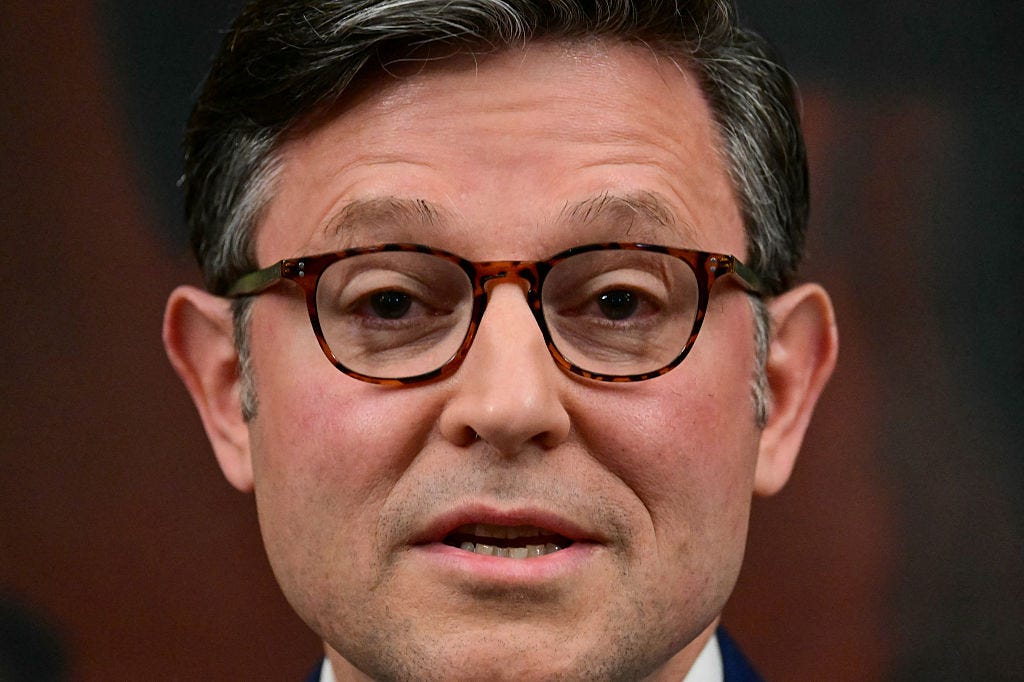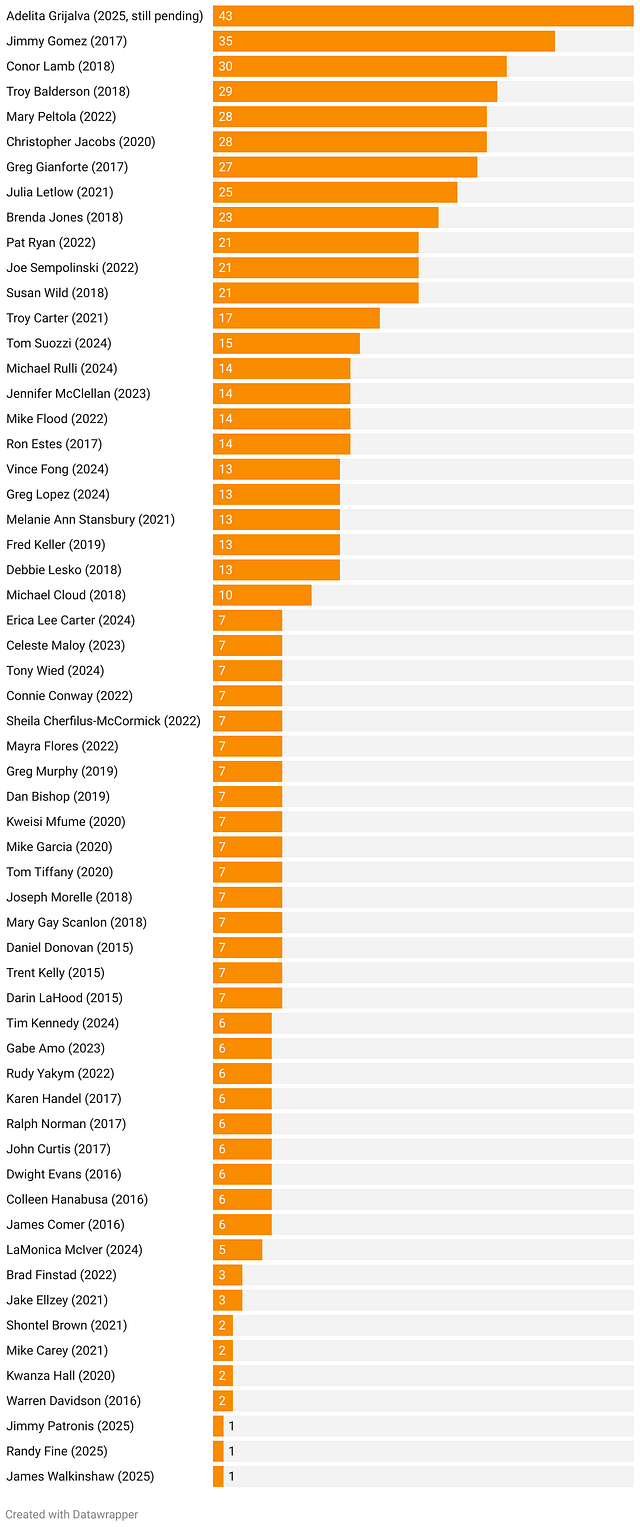|
 |
A new analysis of Washington Post editorials shows that the paper has repeatedly advocated positions that serve the financial interests of its owner, Jeff Bezos, without disclosing those conflicts. You deserve better.
Popular Information isn’t owned by a billionaire. We have no corporate overlord. We are an independent publication loyal only to our readers.
This model works thanks to the readers who choose to support it.
Although Popular Information has 535,000 readers, only a small percentage support our work as paid subscribers. We could put up a paywall to encourage more people to pay, but we don’t think access to crucial information should be limited by income.
If you believe in independent accountability journalism and can afford $6 a month or $50 per year, please consider becoming a paid subscriber.
On September 23, Adelita Grijalva won a special election to represent Arizona in the House of Representatives in a landslide, collecting 69% of the vote. Forty-three days later, House Speaker Mike Johnson (R) has not sworn in Grijalva. Johnson’s obstruction has prevented Grijalva from providing the decisive signature on a discharge petition that would force a House vote on the public release of the Epstein files.
The failure to swear in Grijalva is unprecedented. A Popular Information analysis of the 59 other House special elections since 2015 reveals that the average time between winning an election and being sworn in is less than 11 days. Since Johnson became Speaker in October 2023, special election winners have been sworn in, on average, about seven days after the election.
The current 43-day delay is already eight days longer than the previous record.
Johnson has offered numerous, sometimes contradictory, explanations for the delay. None withstands scrutiny.
In an October 19 interview on ABC News, Johnson stated that he was following the “Pelosi precedent.” Johnson said that when his “dear friend from Louisiana, Julia Letlow, was elected to fill the seat of her deceased husband because of COVID, Nancy Pelosi took 25 days to swear her in.” However, as ABC’s Jon Karl noted, Letlow was sworn in 25 days after her election, as that was the date Letlow requested.
In the same interview, Johnson cited Pelosi’s decision not to swear in Pat Ryan (D-NY) and Joe Sempolinski (R-NY) in 2022 for 21 days, until the House returned from its scheduled recess. Previously, Johnson had claimed it was “standard practice“ to “schedule a swearing in for the Representative-elect when the House returns to session.” Johnson has canceled 14 scheduled legislative sessions since Grijalva’s election.
But earlier this year, Johnson swore in two Republican special election winners, Jimmy Patronis (R-FL) and Randy Fine (R-AZ), while the House was out of session. Johnson held a pro forma session for the swearing-in ceremony within 24 hours after their victories. Patronis and Fine provided critical additional votes to Republicans’ slim House majority. Since Grijalva’s election, the House has held 13 pro forma sessions, but Johnson would not swear her in.
Johnson has also claimed that he was delaying Grijalva’s swearing-in so that she would have “all the pomp and circumstance“ of having the full House attend the ceremony. Grijalva said she’s not interested. “I don’t need pomp and circumstance,” she said. “I just need to get to work for southern Arizona.”
Johnson claims that his refusal has nothing to do with the Epstein files. But Grijalva campaigned on a pledge to sign the discharge petition that would force a vote to release the files. That vote would almost certainly pass, since it would be unlikely for someone to sign a discharge petition and then vote to keep the Epstein files under wraps.
Trump has reportedly been told by Attorney General Pam Bondi that his name appears multiple times in the Epstein files. Trump has subsequently called the Epstein files a “hoax“ and efforts to compel their release “bullshit.”
Previous delays involved close elections or personal choice
The previous record for the longest delay between a special election and its winner being sworn in was 35 days. In 2017, Jimmy Gomez (D-CA) delayed his own swearing-in for more than a month due to what he said was a “family conflict.” However, then-House Majority Leader Kevin McCarthy (R-CA) accused Gomez of “abdicating” his responsibilities in the House to take a final vote as a California state assemblyman. The state assembly was set to vote on controversial climate change legislation the week after Gomez’s election, but the vote was delayed for weeks and likely needed Gomez’s support to pass. Ultimately, Gomez joined the U.S. House before the California vote took place.
After Gomez, the next longest delay — 30 days — was in the special election of Conor Lamb (D) to Pennsylvania’s 18th congressional district. Lamb’s election took place on March 13, 2018 and while some outlets called the race the next day, Lamb was ahead by just over 600 votes. Lamb’s victory was not certified until April 2, at which point the House was in recess. The House returned from recess on April 9 and Lamb was sworn in on April 12.
Troy Balderson (R-OH) waited 29 days to be sworn in after his special election on August 7, 2018. However, it took 17 days to count the votes, and it was not until August 24 that Balderson

